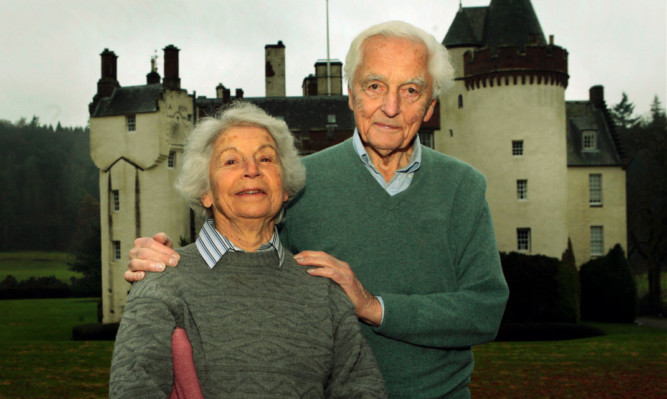A worldwide search is under way for a plaid worn at the Battle of Culloden which went missing from an Angus castle.
The ancient tartan worn by a supporter of Bonnie Prince Charlie, John Ogilvy, was hidden for a generation before making its way to New Zealand.
The plaid was sent back to Lord and Lady Airlie for permanent display in Cortachy Castle, near Kirriemuir, in 1998 but it has since been lost.
Owner Robyn MacIntosh-Handtschoewercker came by it via her aunt, Alice Ogilvy MacIntosh, Ogilvy’s ancestor.
She said: “The plaid, a large vegetable-dyed woollen cloth, was used to cover the Highlanders or was worn in battle.
“This piece was of fine weave but coarse to the touch, a real masterpiece of weaving.
“Towards the end of her long life Alice asked me, her eldest niece, to verify the family link with the head of the Ogilvy clan, the Earl of Airlie and to send the plaid back to Scotland for permanent display in Cortachy Castle. This was thought to be accomplished in 1998.
“By 2007 the plaid was missing and Alice was in poor health. She died in 2011. All seemed to be lost until early in 2014 when I was informed that it was found.
“I asked the Scottish Tartans Authority to retrieve it and put it in their purpose-built facility.
“However, on arriving at Cortachy Castle they were presented with a lady’s silk scarf.
“We hope someone may know where the plaid is.”
Lord David Airlie, in a letter to Mrs MacIntosh-Handtschoewercker in 1997, promised to take “the greatest care” of the plaid.
He suggested it might be placed alongside the dress worn by a former Lady Ogilvy when she attended the ball given by Charles Stuart, prior to his march into England in 1746.
Lady Airlie said the couple were as anxious to find it as Mrs MacIntosh-Handtschoewercker and suggested it may have been lent to an extended family member.
She said it had simply been misplaced and a worldwide search of family members would continue in the hope it might eventually resurface.
Mrs MacIntosh-Handtschoewercker contacted Police Scotland who visited the castle but said there was “no evidence to substantiate any crime having been committed”.
After Culloden, Jacobite supporters found themselves in considerable danger from the victor, the Duke of Cumberland, who became known as Butcher Cumberland.
Anyone found with such a plaid in 1746 could be killed and have their lands confiscated.
